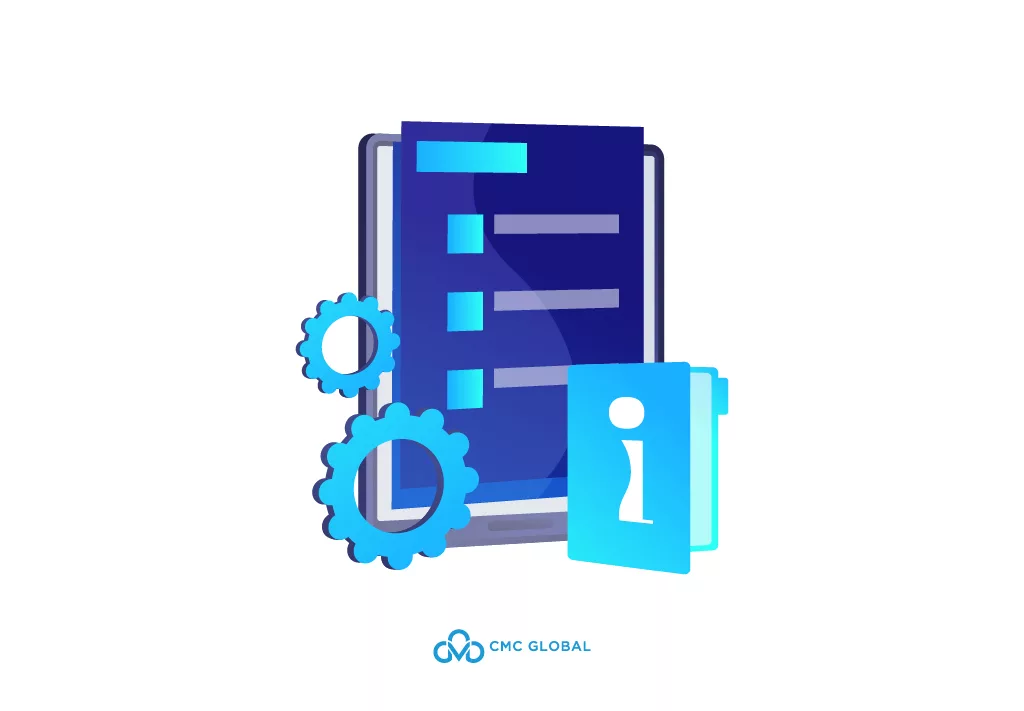Finding the right outsourcing software development is a challenging task. There are many variables you will need to evaluate before you can make the final decision, so don’t rush it, take your time. This article will provide you with a blueprint that you can follow step-by-step to find the best-suited vendor for your project.
Phase one: 3 Steps for determining the most potential vendors

Companies who have succeeded in outsourcing their software development projects understand that choosing the right vendor starts with understanding their own needs first.
So, there are two important questions you need to answer:
- What do you need?
- Who can give it to you?
This is where you need to think about how you expect your project needs to be delivered and what the most important qualities you will expect from a suitable vendor are. To do so, you can follow these three simple steps:
Step 1: Know your own business strategies and goals
Are you looking for a long-term technological partner, or do you think about short-term support that’s on-demand?
First off, why are you looking for a software outsourcing partner?
- Are you finding a long-term technical partner?
- Are you finding a vendor for a short-term need, such as an app development project?
Understanding your end goal, you can then identify:
- What will the role of the vendor within your project be?
- How you will collaborate with them.
- Who from your company will you need to deploy to work with the vendor?
Step 2: Study the company profile of the most potential vendors
The list of vendors is endless, so you need to narrow it down and choose a few that can suit you best. On the surface, IT vendors may seem equally good until you look into their stack, project experience, and range of expertise. Here is how you can pick out the most potential vendors:
- Technical Expertise. Find vendors with a technical specialization suitable to your needs (e.g., a particular programming language, framework, or mobile development capabilities).
- Technical Familiarity. Find vendors who have experience with the particular type of software of your need (e.g., CRM, ERM, or CMS). Although working with a development team that uses a wide range of advanced tools can be beneficial, it can be more advantageous to work with vendors who have a narrower but more specific set of skills. A strong front-end team handles redesigns better than a less focused group of full-stacks. Find vendors with a technical specialization suitable to your needs (e.g., a particular programming language, framework, or mobile development capabilities).
- Past Experience. Find vendors with domain-specific knowledge (e.g., financial technology). Working with a vendor with experience in your industry will be much easier because they can offer their technical expertise and the know-how they’ve learned from past projects.
Step 3: Prioritize your must-haves
After you’ve got a long list of most potential vendors, you should continue to narrow it down by prioritizing your must-haves. The reason is a vendor can be bigger in size than another vendor, but they may be weaker in the area that is the most important to your project. To avoid getting lost, use the MoSCoW decision-making framework:
Phase two: 6 Steps for determining the best vendor

At this point, you’ve now got a couple of vendors that seem like the best fit. It can be hard to truly know which one will be the best choice with the information they provide on their online channels, so it’s time for direct communication.
To be able to do a thorough analysis, aim at 2 or 3 options that you consider the best software outsourcing vendors; the more you have, the less focused you will be.
It’s the people behind software solutions who matter.
From here on, it’s critical to get to know the people within a company rather than just make assumptions based on raw Internet research. Nothing can help you learn about your potential vendors better than meeting them in person and finding out if there is a genuine match.
If they have an office in your area, visiting their office is the best option. If that is not possible, video calls are a great alternative.
Now, let’s talk to some great software development vendors! Here are 6 steps you can follow to get all the information you need before making a decision:
Step 1: Ask about the vendor’s business experience
Here are ways you can find out more about your potential vendor’s experience.
- Study the portfolio of the vendor. Read the case studies of their past projects or ask for a summary of them. Don’t blindly trust what the vendor shows you on their website; mockups or big-name logos might hide the fact that the company just did some minor work for the shown client. Hence, ask questions.
- Dig deeper. When you find a particular project relevant to yours, ask the vendor about the details.
- Look for reviews. Explore testimonials on Clutch and Glassdoor or video reviews on the partner’s YouTube channel to better understand how they deal with their clients.
- See if the content they have created makes any sense. Reliable and capable vendors tend to create useful and informative content in the area they are dealing with to prove their expertise. With this in mind, you can browse their blog section to see if the vendor you are looking at is truly capable.
Step 2: Evaluate the vendor’s technical expertise
The next step is to examine the vendor’s proficiency in working with your technology stack, architecture, and infrastructure. If ongoing communication with your in-house team is central, you should have outsourced developers conduct a test project to assess their ability to collaborate with your people.
Step 3: Evaluate the practicality of the vendor’s software development process
Quality output requires a strictly followed process, so you need to analyze your potential vendor’s software development workflow to determine its quality and how suitable it is for your needs. Find out about:
- What does the vendor mean by a process? Do they have precise rules for each stage of the software development circle?
- Does the process match the one your company is using? For example, if you require day-to-day communication, can their process guarantee it? Or, if you need to monitor the progress and all the deliverables as you go, do they give you access to tools, reports, and other means to do so?
- What quality assurance processes, standards, and tools does the vendor use?
Step 4: Evaluate the development projects stability and security
If you are looking for a long-term partner, find out if the vendor is reliable enough to be worth the effort. Find out about:
- Is that software development company upfront and transparent about its processes and policies?
- Is it easy to get in touch with the people who are in charge? Do they have a designated project manager who will handle your requests as soon as they arise?
- Are they well-known in the software development industry? Can you find stories about them on the Internet outside of their official website?

Step 5: Evaluate the vibe between your team and the vendor’s team
It is essential for all parties involved to enjoy their work together. Without that feeling of shared reliability, the project will flop regardless of how compatible both teams can be expertise-wise.
When you’re about to bring an outsourced team in, it is important to understand that almost every project has some crises along the way – that is when likability will matter the most. Likability will also allow both teams to work arm-in-arm for days without losing their grip in order to meet deadlines.
Besides that, the list of people you can talk to should not be limited to salespeople or account managers. Make sure that the vendor you choose allows you to talk directly to their developers, heads of departments, project managers, and even CTO and CEO in the face of serious problems.
Step 6. Evaluate their sales process
Looking at how a vendor negotiates a contract can reveal a lot about how well they can do business. Stay on the lookout for signs that show how the project can end and whether the vendor takes any breach of contract seriously. Make it clear about the following:
- How do you feel about the sales process of the company? Does it feel like it is quite impersonal and transactional, or does it feel like a business relationship of shared understanding?
- Do they make efforts to learn more about your company and the project from the beginning? Does the company advise or refuse impractical requirements, or is it a passive receiver of your requirements who rushes pricing?
- Are the people responsible for the project involved in the sales process? Can you talk to your potential PMs, devs, and other key people in the company at this stage?
Final words
The key for you to evaluate a vendor is knowing that reliable and capable vendors have nothing to hide (except for their business secrets, of course), so just raise your concerns and ask the vendor how they are going to deal with those concerns. That will eventually enable you to find the best vendor for your project.
If you need help navigating the Vietnamese IT outsourcing market, fill out the contact form below, and our sales team will be in touch shortly to advise you!




